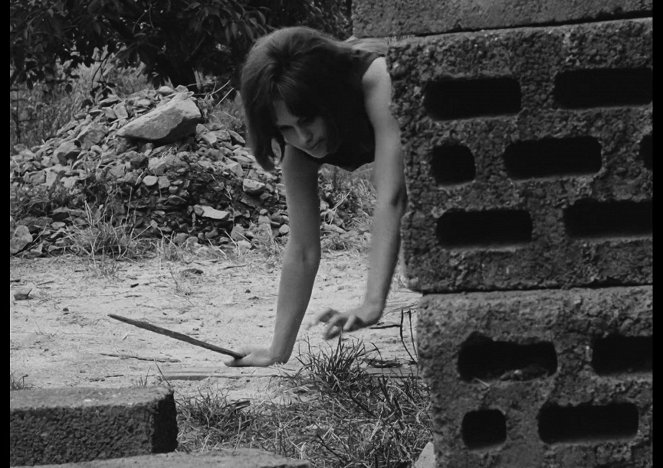Regie:
Ivan PasserBesetzung:
Karel Blažek, Zdeněk Bezušek, Věra Křesadlová, Jan Vostrčil, Jaroslava Štědrá, Vlastimila Vlková, Karel Uhlík, Dagmar Ředinová, Miroslav Cvrk (mehr)Inhalte(1)
Petr and Karel, friends and colleagues from the conservatory, meet in the town of Tábor in South Bohemia after many years. Karel, nicknamed Bambas during his studies, works as the director of a music school. Petr is to appear as a soloist in a concert of an amateur symphonic orchestra. Petr is accompanied by a young woman named Štěpa. Karel brings the guests into his little new villa and introduces Petr to his whole family. The years of separation, however, have brought some uncertainty into the relationship between the men. The whole day is marked by minor faux pas which escalate during a common lunch. The menu consists of a hen which had been run over by Bambas's new car. Petr and Štěpa also take part in a village funeral where Bambas performs with his father-in-law in order to make extra money to finish the construction of the villa. It is only late in the evening when Petr and Bambas again become close over a bottle of sliwowicz. They listen to music, talk about their unfulfilled dreams, and, late at night, decide to "get out to the world there and play beautiful music". They soon get exhausted by the walk and thus decide to use the new car, but, being intoxicated, they fall asleep in the car. The next day, they wake up with a hangover. The grandmother serves her own "egg-nog". The drink is, however, so thick that it is even impossible to pour it from the glasses. (Verleiher-Text)
(mehr)Kritiken (5)
“A woman, and she drinks Pilsner..." You don’t need to know anything at all about Intimate Lighting, but it’s immediately obvious that it is a typical offering of the Czech New Wave. Passer clearly filmed what he wanted, how he wanted. Unfortunately, despite good intentions, it didn’t really work. There are a few scenes here that are almost perfect, which makes it all the more disappointing that the rest isn’t as good. I’m not saying it’s bad at all, but you can find much better pictures made by New-Wave colleagues that give you basically the same thing, but in a more entertaining way.
()
This film accurately captures the atmosphere and movements in Czech cinema of the 1960s. Experiments with film language, use of non-actors, the poetics of awkwardness, the effort to capture the banality of everyday life in various social environments, etc. On the other hand, although I consider Intimate Lighting to be a fairly interesting film, Forman managed to capture the same things as Passer in his early films much more entertainingly, and the difference between, let's say, The Firemen's Ball and Intimate Lighting expresses is expressed most effectively by 2 stars. Overall impression: 60%.
()
I liked how, even without a solid narrative structure, the film has such a beautiful poetic atmosphere that makes everything sound incredibly real and at times I even felt like I was sitting right at the same table with the actors. Ivan Passer wrote a very interesting script from everyday life, cast interesting, though completely unknown to me, actors and, based on the responses, he managed to create a film that perfectly reflects the moral values of the time with a tragicomic concept that rises above the iconic "Homolka" humour. And at least for that, Intimate Lighting definitely deserves those 4 stars.
()
In the Czechoslovak New Wave, the cameras went out of the darkened studios and into the world, and began to revel in the human tragicomic pettiness that pervaded the post-Soviet society of the time. Seemingly about nothing, but a bravura zeitgeist that explains the character of the Czechs, even to this day, a bit too close for comfort.
()
The Czech New Wave is definitely not a period I love, but it must be acknowledged that films were created that are humane yet have something to say, whether it's about what the Czech person was/is like, what society was like, or how little sometimes it takes for us to just get up every day and not give up.
()

